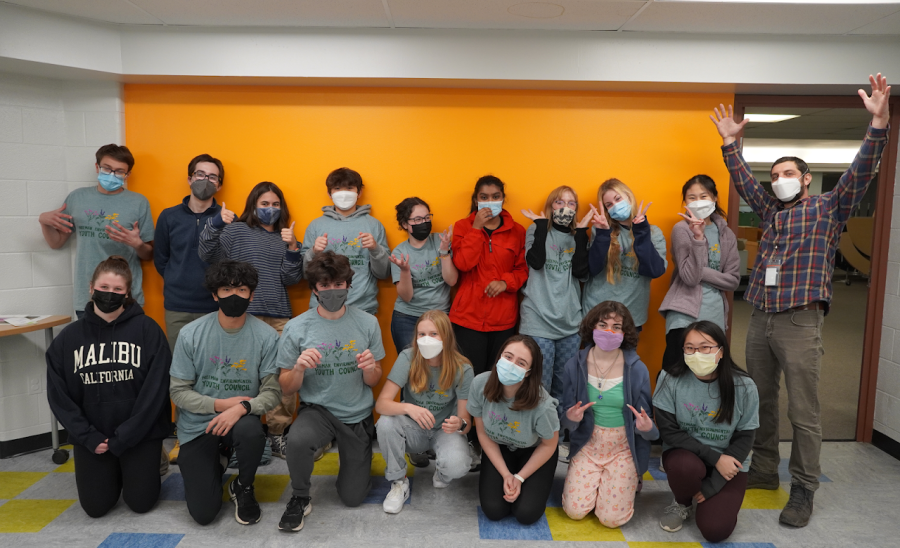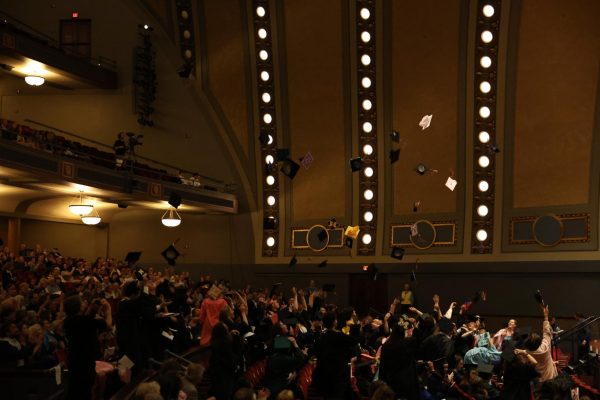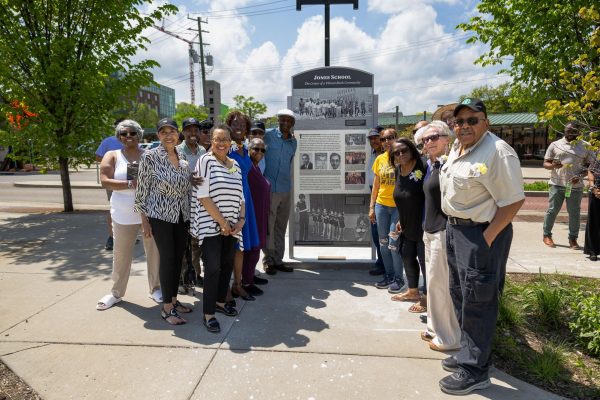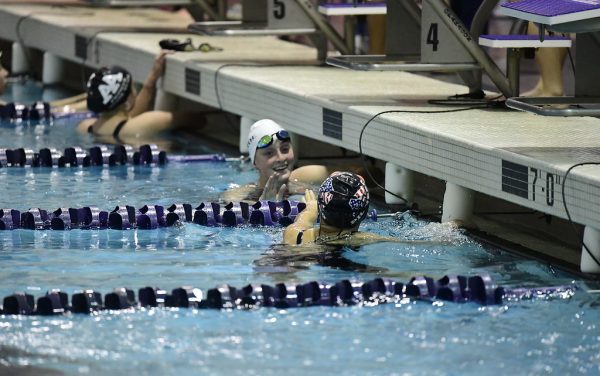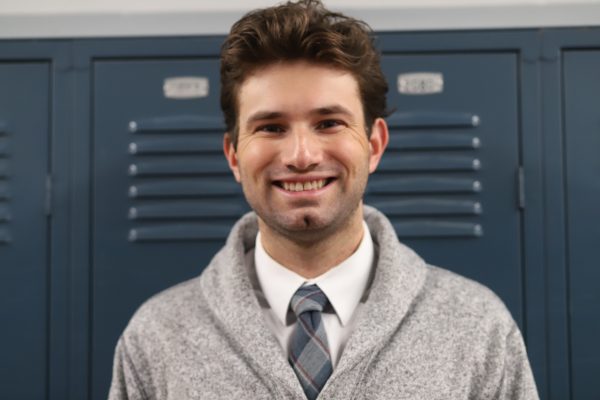Reduce and Reuse in AAPS
Is reusable dishware a feasible solution for waste in Ann Arbor Public Schools?
Members of the Freeman Environmental Youth council pictured with their adult liason, Coert Ambrosino. The council is made up of high school students from four out of five Ann Arbor high schools.
On Feb. 1st, the Freeman Environmental Youth Council , made up of students motivated to promote sustainability and advocate for environmental education, met with Emile Lauzanna, the Executive Director of Environmental Sustainability, to discuss the feasibility of introducing reusable dishware to AAPS cafeterias.
Possible obstacles anticipated by the Freeman Environmental Youth Council included short lunch periods and students at some high schools eating lunch outside of the cafeteria.
“It’s a very structural situation that we’ve developed in the United States,” Lauzanna said. “School lunch is federally funded, highly regulated—it’s just got all of these parameters around it that [causes it to be] locked in place.”
The discussion included further obstacles, including square footage in kitchens across the district. In several schools, the kitchens simply don’t have space for the commercial-grade dishwashers and storage of dishware that would be essential–even if all other kitchen equipment was gutted.
This concern progressed to the most hindering obstacle: money. Retrofitting AAPS kitchens with the correct equipment would incur a huge upfront expense, requiring expensive equipment and even more expensive renovations and in some cases, building expansions. Operational costs would be equally immense, as new staff would need to be employed at every school to account for the hundreds of dishes that would need to be sanitized each day. Lauzanna estimates that these employment costs could accumulate to over two million dollars annually—even at the minimum living wage.
Ultimately, reusable dishware isn’t yet an economic possibility for AAPS, which operates with approximately $9,000 per student per year; Greenhills, a private school that implements reusable dishware, has approximately $30,000 per student per year.
Just because reusable dishware will have to be revisited further down the road doesn’t mean that AAPS isn’t hard at work to improve their sustainability practices. Lauzanna shares that the sustainability branch of AAPS is currently focusing their efforts on working to refine the recycling process and ensure clean and high quality recycling makes it to the city’s recycling facility without producing any excess waste, as well as experimenting with introducing composting to AAPS. In the coming school year, Lauzanna will be aiding in the direction of a composting pilot program at three AAPS elementary schools.




